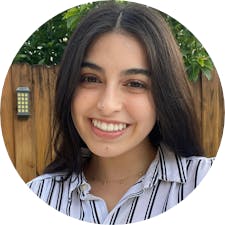This article was updated to reflect that UF's maintained its decision to bar professors' testimonies was not affected by external entities. A previous version of this article reported otherwise.
Last week, UF wrapped up its internal investigation into conflicts-of-interest and outside activities policies, offering policy recommendations to avoid future scandals.
Although the report followed recommendations made by a task force created to reimagine UF’s conflict of interest policies, the proposed changes would still allow the university to bar professors from testifying in the future.
President Kent Fuchs sent the announcement in a university-wide email Tuesday, where he also wrote UF had sent documents to its accreditor to comply with its investigation.
Fuchs created the task force Nov. 5, and it concluded right before Thanksgiving break — a week earlier than its scheduled deadline. The task force’s final report recommendations stated UF could still deny testimony if it thought professors were engaging in too many outside activities restricting them from duties at UF.
In Tuesday’s email, Fuchs wrote that he accepted the recommendations and asked the appropriate offices to begin implementing them. In order to implement the changes, some employees’ collective bargaining agreements may need to be modified, he wrote.
These developments come after weeks of UF facing criticism for its decision to limit professors from testifying against the state. The university’s decision has led to questions over how much control outside entities, such as Gov. Ron DeSantis, have over the school following revelations that some Board of Trustees have political ties with DeSantis.
Those accusations eventually led to UF’s accreditor investigating the school. UF is also being investigated by a congressional subcommittee and its Faculty Senate has asked to conduct its own investigation.
Additionally, some professors who were barred from acting as expert witnesses in cases against the state joined a lawsuit against the school.
Some of the professors involved in the lawsuit against UF said the recommendations are not enough. They argue the changes still preserve the university’s right to deny requests that pose a conflict of commitment.
“We are disappointed but not surprised that a task force created as a public relations tool has returned with window-dressing recommendations,” read a statement from David O’Neil and Paul Donnelly, lawyers representing six UF professors suing the school.
The statement read that the proposed changes to the policy failed to resolve the constitutional problem with UF’s conflicts-of-interest policy, only addressing the narrow issue of expert testimony.
“We will continue to press the University to make the real change that the Constitution requires,” the statement read.
In a letter sent to Fuchs Nov. 12, three UF professors also pointed out that two of the task force members — UF College of Law Dean Laura Rosenbury and UF Chief Compliance, Ethics, and Privacy Officer Terra DuBois — had been involved in the same conflicts-of-interest policies that prevented the professors in the first place.
UF reversed course on its decision to bar the professors Nov. 5, but the landslide of investigations and criticism continued to pile.
The task force’s four-page final report listed a total of seven policy recommendations. It stated that UF’s policy needs to affirm the academic freedom of faculty and their First Amendment right to free speech on matters of public concern. It specifically singled out cases that challenge the constitutionality, legality or application of a Florida law.
It also recommends that UF should clarify how such public comments, including those to the media, are considered outside activities when made by faculty and staff as individual citizens. The list also asks if a professor’s request is denied, the university should provide a written explanation with evidence as to how it is a conflict of interest.
As for the process recommendations, the task force recommends the university create a Provost’s Advisory Committee to increase transparency in the decision-making process and include faculty perspectives.
The proposed committee, consisting of both faculty and UF administrators, would review employees’ potential denied requests to serve as expert witnesses in litigation when the state is involved, among other proposed denials. After a review, it would provide a documented recommendation to the provost who will make the final decision.
Faculty members will be nominated to join the committee by the Faculty Senate and appointed by the Provost serving three-year terms. Administrators will be chosen by Fuchs and will serve as long as they remain UF administrators. The report also recommends the implementation of an appeal process for all denial requests relating to outside activities and to revise the operating procedures of the Conflict of Interest Program office.
UF maintained its decision was not affected by external entities or individuals in its response to its accreditor’s investigation. It also wrote the school’s Board of Governors was not involved in the decision-making process at any time.
Now that the documents have been sent, UF’s accreditor can continue the long process of investigating the university.
It is unlikely UF will lose accreditation, but the process is expected to take several years.
Alexander Lugo contributed to this report.
Contact Camila Pereira and Elena Barrera at cpereira@alligator.org and ebarrera@alligator.org
Follow them on Twitter @CamilaSaPereira and @elenabarreraaa

Camila is a third-year journalism student and the administration reporter on the university desk. When she is not reporting for The Alligator, Camila is always listening to music and probably drinking honey milk tea.

Elena is a second-year journalism major with a minor in health sciences. She is currently the University Administration reporter for The Alligator. When she is not writing, Elena loves to work out, go to the beach and spend time with her friends and family.





